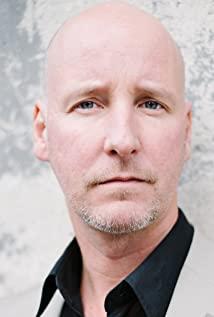"Hannah Arendt" is the work of the famous German female director von Trotta, and it is also her re-cooperation with Barbara Sukova. Their previous collaboration was also in the biographical film "Rosa Luxembourg" in 1986, but this time they chose Hannah Arendt, a famous female philosopher of the 20th century.
The film does not tell Hannah's life like a traditional biographical film, but only selects a small period of Hannah's life. And this short period of time can be said to be a very important moment in Hannah's life. In 1961, she volunteered to The New Yorker to sit in on the Ehrman trial, and she wrote an article for the New Yorker accordingly. It was these articles or her views in the articles that pushed her to the forefront, and many people thought she was defending the perpetrator and blaming the victim for the fault. All the former colleagues and friends turned to leave, Hannah did not give in because of this, but kept thinking about the theme of "evil" in the years to come.
1. Hannah's important point - the evil of banality
Hannah herself traveled to Jerusalem to watch Elman's trial. Ehrman has denied the charges against him throughout, insisting that he merely followed orders.
When we bring up the horrific tragedy of the 20th century, most people can't help but imagine the masterminds as evil demons, who by nature are murderous. Elman's defense revealed another situation, assuming that he really just performed the task as he himself said, then is he really innocent? Hannah believes that Ehrman's crime is precisely the greatest evil in the world.
The Elmans have fully surrendered the important feature that sets us apart from other animals, namely the ability to think. He does not judge the orders he receives, and executes them without thinking, and as a result he commits crimes on a large scale. He defended himself by obeying orders, forgetting his responsibilities and obligations as a person before being a member of the system.
The incompetence and abandonment of thinking by ordinary people is also an evil, which is what Hannah calls "the evil of banality."
A more interesting point is the interesting paradox of Hannah's thought mentioned in Mr. Dai Jinhua's interpretation. Hannah studied under the famous philosopher Heidegger, known as the "King of Ideas". This is such a great philosopher who taught Hannah how to think philosophically, but once supported and even joined the Nazi organization. If Hannah's view of the "banal evil" of the common man holds true, then how is Heidegger's behavior to be explained?
2. The root cause of Hannah's "Internet violence" - have we lost the right to reflect on the responsibility of the victims
After Hannah's article came out, she received a lot of bad reviews, and even her former colleagues and friends opposed her and broke up with her. Although there was no Internet at the time, what Hannah suffered was undoubtedly a "cyber storm". The origin of all this is nothing but the fact that the Jewish leader's cooperation with the Nazis was mentioned during the trial, and Hannah agreed that resistance was impossible, but whether there was a better way. This view is seen as defending the Nazis, hating one's own race, and despising one's own nation.
The views of Hannah's people are well understood, they think, "In such a vicious incident, how can you not criticize the perpetrator as violently as everyone else, and how can you say that the victim also bears the burden? responsibility". In their opinion, the rules here are very simple, it can only be black and white, as long as you have a voice that is different from ours, you are helping the perpetrators. The vast majority of them hadn't even read Hannah's article, understood her true point of view, let alone thought about it.
In this regard, Hannah's attitude is also very firm. First of all, she stated, " This is not a point of view debate at all, this is a slander of personality ." Secondly, she pointed out, " trying to understand is not the same as forgiving, I see understanding as my duty, and it is the duty of all those who put pen to paper on this subject. "
All of this is very similar to what we are seeing on the Internet today. What we need to reflect on is, when a vicious incident occurs, is it the only allowed voice to accuse the perpetrators? Is the reflection on the victim's behavior helping the perpetrator to justify or whitewash it? Does thinking and analyzing problems calmly and objectively mean cold-blooded and ruthless? If this is the case, have we also surrendered our ability to think independently and committed the "banality evil" like Ehrman?
3. Hannah's bravery - face the pain, go beyond the pain
Teacher Dai Jinhua said that the theme and tone of the film is the brave Hannah. What I think of Hannah's bravery is that she faced all kinds of attacks in the whole process, insisted on standing up to express her views, and never wavered her position because of the opposition of relatives and friends. In a storm like this, it does take a lot of courage and perseverance to do this.
What I didn't expect was another level mentioned by Mr. Dai. Hannah was not only a philosopher, but also a German Jew. She has experienced that terrible history firsthand, and she has also been in a concentration camp. She is a witness and a survivor. When she reviewed and reflected on this history through the Ellman trial, she did not let herself fall into the sensibilities of the victims, but went beyond her personal painful experiences and philosophically considered these issues.
Hannah the Brave did it, and that alone deserves admiration.
View more about Hannah Arendt reviews










